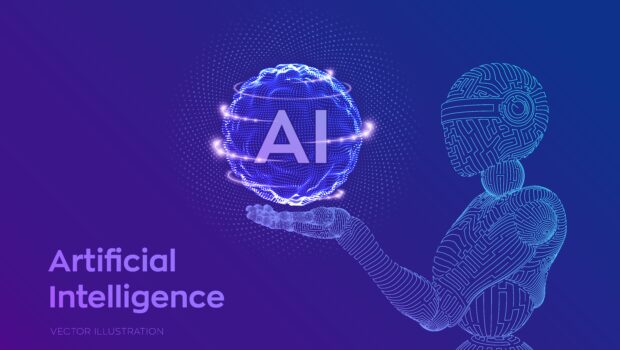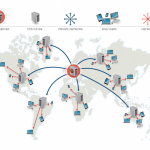Here’s How Blockchain and AI are Improving Personal Data Privacy
Blockchain and AI are set to be two of the biggest game-changers in digital technology. Blockchain has been described as a decentralized, distributed ledger system that increases transparency and data security when used in fintech. Every token and cryptocurrency exchange is based on blockchain for safety. Exchanges like OKX are safe and secure thanks to superior security in place.
AI, on the other hand, is a way that machines can take steps to make decisions without being programmed to do so. Both of these technologies are poised to completely transform the way we manage our personal information online. Here’s how they’re doing it today.
What is Blockchain?
The blockchain is a distributed ledger that can be programmed to record virtually anything of value and store it in a public database. It’s made up of blocks, which are cryptographically linked together to form the chain we know as blockchain. Each block holds batches of transactions, and every transaction must be validated by all participants for it to go through.
That’s why we call them distributed ledgers, there isn’t just one centralized version stored on one server (or even many servers). Rather than being stored in just one place by an authority like Google or Facebook who controls access rights arbitrarily and can delete information at will without your permission, your data is duplicated across millions of computers around the world. Find more information about how blockchain works in this tutorial.
What is AI?
AI is a technology that enables computers to perform tasks that require intelligence when done by humans. AI is a broad term that includes many types of technologies, and it’s used in many different industries. Examples include natural language processing (NLP), machine learning, deep learning, and intelligent agents. AI is often defined as computer systems able to perform tasks normally requiring human intelligence.
Many people think only of Hollywood-style robots or self-driving cars when they hear the term artificial intelligence (AI). But AI has been around longer than you might think. And it’s a very complex field with countless applications across multiple industries.
How Does Blockchain Make Personal Data More Secure?
In a decentralized blockchain system, each node in the network maintains an identical copy of the ledger. This design is more secure than centralized systems because there are multiple copies of data rather than just one. It’s also more secure than traditional databases because transactions made on blockchains are immutable and irreversible, which means they can’t be tampered with or altered by hackers.
Blockchain also uses cryptographic protocols to ensure that users have permission to access their data. In addition to being decentralized and transparent, this makes it difficult for hackers to infiltrate any one location where your information is stored and steal your data without being detected by other users who operate nodes within the blockchain network.
Finally —and perhaps most importantly— blockchain has been designed from its inception with security as a top priority. Therefore it tends to outperform other distributed ledger technologies (DLTs) when it comes to protecting user privacy and personal information security.
How Does Blockchain Protect User Privacy?
There are several ways that blockchain technology and AI can help you protect your data. First of all, the decentralized nature of blockchain makes it impossible to hack one central server or database and gain access to all data at once. Instead, data is stored across multiple computers that are scattered around the world in different locations. If hackers manage to break into one computer, they need access to every other computer as well, which is nearly impossible due to how dispersed this system is.
Additionally, blockchain technology uses encryption protocols making it difficult for malicious individuals or organizations (such as governments) from gaining access to sensitive information about individuals. Those who use their products are at a risk through a seemingly innocuous piece of software like Google Chrome or Microsoft Office 365. Not only does it keep users’ private information secure from hackers but also from government surveillance agencies looking into your personal history while using these programs at work or home.
How Are These Technologies Improving Cybersecurity?
In the future, blockchain and AI might be able to work together to help protect users’ data privacy. AI will analyze user data and help determine whether it needs to be encrypted or stored in a private cloud. If you want to share your personal information with someone, this technology could encrypt it before sending it over the internet. If a hacker tried to access your data without permission, they wouldn’t be able to read it because they don’t have your encryption key—which is held by only those who need it (like you).
Blockchain and AI Can Work Together to Improve Data Security and Privacy
The combination of AI and blockchain is proving to be a powerful one when it comes to data security and privacy.
Blockchain, by itself, is a secure system that can help prevent data breaches by keeping information decentralized and preventing outsiders from accessing sensitive user data. However, blockchain’s ability to encrypt data has its limitations, the tech cannot identify potential attacks or deviations from normalcy within the network.
That’s where AI comes in: using machine learning techniques, humans can train algorithms to recognize patterns in systems like blockchains, flagging anything suspicious for further investigation.
As you can see, blockchain and AI are two powerful technologies that are having a major impact on the way we manage personal data. These technologies are already being used by organizations in many industries, and they’re likely to continue growing in popularity as people learn more about the benefits of using them for privacy protection. And with more people becoming concerned about their data security, these new tools will be in high demand for a long time to come.
Cover Image by Freepik

















